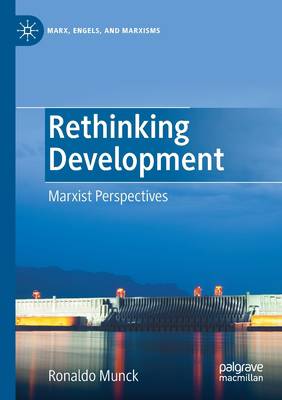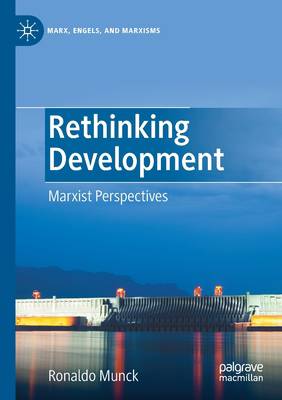
- Retrait gratuit dans votre magasin Club
- 7.000.000 titres dans notre catalogue
- Payer en toute sécurité
- Toujours un magasin près de chez vous
- Retrait gratuit dans votre magasin Club
- 7.000.0000 titres dans notre catalogue
- Payer en toute sécurité
- Toujours un magasin près de chez vous
Description
Development and underdevelopment are the main determinants of life-chances worldwide, arguably more so than social class. Marxism, as the underlying theory for social revolution, needs to have a clear understanding of the dynamics of development and social progress. Exploring the intersection of Marxism and development, this book looks at Marx's original conception of capitalist development and his later engagement with under-developed Russia. The author also reviews Lenin's early critique of the Russian populists' rejection of capitalism compared with his later analysis of imperialism as a brake on development in the non-European world. The book then considers Rosa Luxemburg, who arguably provides a bridge between these theorists and those that follow with her analysis of imperialism as a necessity for capitalism to incorporate non-capitalist lands. Turning then to the non-European world, the author examines the Latin American dependency theories, the post-development school and the recent indigenous development theories advanced by Andean Marxism. Finally, Munck addresses the relationship between globalization and development. Does this relationship suggest that it has not been capitalism but a lack of capitalism that has led to under-development?
Spécifications
Parties prenantes
- Auteur(s) :
- Editeur:
Contenu
- Nombre de pages :
- 213
- Langue:
- Anglais
- Collection :
Caractéristiques
- EAN:
- 9783030738136
- Date de parution :
- 19-05-22
- Format:
- Livre broché
- Format numérique:
- Trade paperback (VS)
- Dimensions :
- 148 mm x 210 mm
- Poids :
- 290 g

Les avis
Nous publions uniquement les avis qui respectent les conditions requises. Consultez nos conditions pour les avis.






